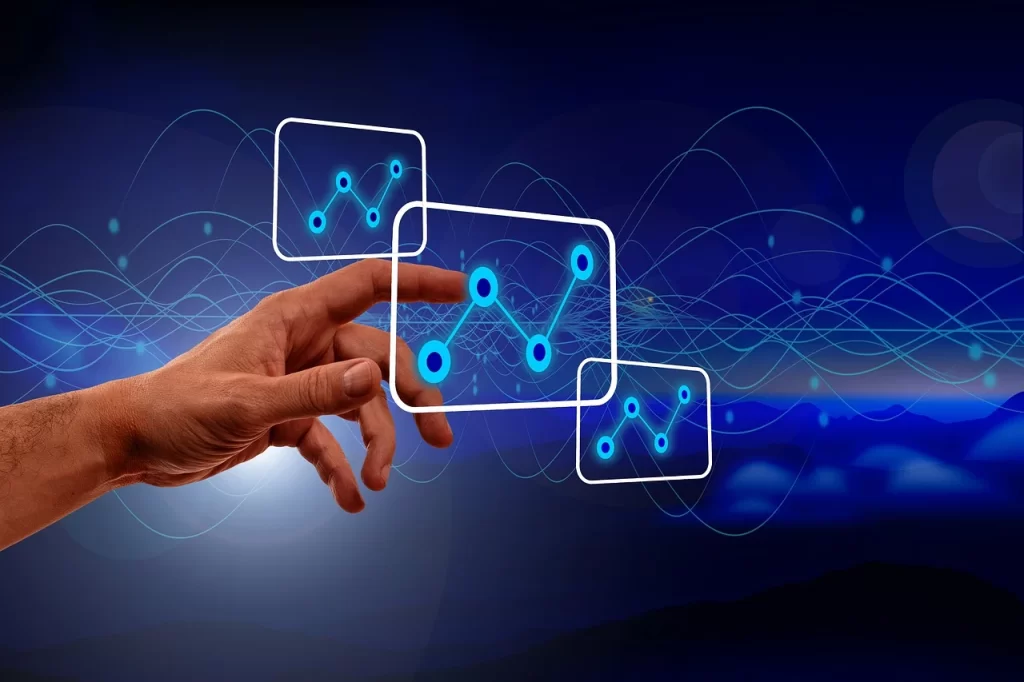Let’s Discuss the Future of AI in Different Fields.
Artificial Intelligence (AI) has become one of the most controversial and talked-about topics for quite some time now. With technological advancements and breakthroughs, AI has the potential to revolutionize various industries and reshape the way we live and work. In this article, we will explore some growth, evolution, and potential AI impacts in different fields, while debunking some common myths surrounding this powerful technology.
AI has the potential to reshape and revolutionize various industries. Let’s explore how AI is predicted to impact different sectors in the future:

1. Healthcare Industries
The healthcare industry stands to gain immensely from adopting AI technologies. With AI, the industry can leverage the power of data to improve patient care, diagnostics, and treatment outcomes. Some developing applications of AI in the health industry include:
- Disease Diagnosis: AI can aid in diagnosing diseases by analyzing patient data, symptoms, and medical history. AI algorithms can identify patterns and provide accurate diagnoses, potentially reducing misdiagnosis rates.
- Personalized Medicine: AI can help create specific treatment plans based on an individual’s genetic makeup, medical history, and other factors. This type of approach can lead to the best and most reliable form of treatment.
- Healthcare Robotics: AI-powered robots can assist in surgery, rehabilitation, and elderly care. These robots can perform delicate surgeries precisely, provide physical therapy, and offer companionship to the elderly.
2. Education
The future of education is predicted to be highly influenced by AI. AI has the potential to transform traditional education to be more targeted and effective. Some potential applications of AI in education include
- Personalized Learning: AI can adapt educational content and teaching methods to accommodate each student’s learning style and pace. This approach can make students engage and improve their learning for better outcomes.
- Virtual Assistants: AI-powered virtual assistants can provide instant feedback, answer student’s questions, and assist in their learning process. These assistants can utilize natural language processing and machine learning to understand and respond to student inquiries.
- Automated Grading: AI can automate the grading process, saving teachers time and providing immediate feedback to students. This automation can free up educators to focus on other aspects of teaching and student support.
3. Finance
The financial industry stands to benefit from the application of AI technologies. AI can help improve decision-making, detect fraud, and enhance customer experiences. Some potential applications of AI in finance include:
- Risk Assessment: AI algorithms can analyze vast amounts of financial data to assess and predict risks. This can help financial institutions make informed decisions regarding investments, loans, and insurance.
- Fraud Detection: AI can detect patterns and anomalies in financial transactions, helping identify fraudulent activities quickly. This can save financial institutions and customers from financial losses.
- Robo-Advisors: AI-powered robo-advisors can provide personalized financial advice and investment recommendations based on individual goals and risk profiles. This technology democratizes access to financial planning and advisory services.
4. Military and Cybersecurity
AI-assisted military technologies have the potential to enhance national security and defense capabilities. However, there are ethical considerations and risks associated with the use of AI in this field. Some potential applications of AI in military and cybersecurity include:
- Autonomous Weapons: AI can enable the development of autonomous weapon systems that do not require human intervention. These systems can enhance military capabilities and minimize risks to human soldiers..
- Mission Efficiency: AI can improve mission planning and execution, optimizing resource allocation and decision-making in military operations. AI-assisted systems can process vast amounts of data and provide real-time insights to commanders.
- Cybersecurity: AI can help detect and prevent cyber threats by analyzing network traffic, identifying vulnerabilities, and responding to attacks in real time. AI systems can learn and adopt immediate cyber threats.
5. Transportation
The transportation industry is on the verge of a major transformation with the advent of AI technologies. AI can revolutionize autonomous vehicles, traffic management, and logistics. Some potential applications of AI in transportation include:
- Autonomous Vehicles: AI technologies enable self-driving cars and trucks, which have the potential to enhance road safety, reduce traffic congestion, and optimize fuel consumption.
- Traffic Management: AI can analyze real-time traffic data to optimize traffic flow, predict congestion, and suggest alternative routes. This can improve the efficiency of transportation systems and reduce travel time.
- Logistics and Supply Chain: AI-powered algorithms can optimize logistics operations, including route planning, inventory management, and demand forecasting. This can lead to cost savings and improved delivery efficiency.
6. Advertising
AI has the potential to transform advertising by making it more targeted, personalized, and effective. AI can analyze big amounts of data and can give useful analytics to marketers. Some potential applications of AI in advertising include:
- Targeted Advertising: AI algorithms can analyze user data and preferences to deliver personalized advertisements. This targeted approach can improve ad relevance and increase conversion rates.
- Ad Campaign Optimization: AI can optimize ad campaigns by analyzing performance data, identifying trends, and suggesting improvements. This can help advertisers achieve better ROI and maximize their marketing efforts.
- Sentiment Analysis: AI-powered sentiment analysis tools can analyze social media data and online content to gauge public opinion and sentiment toward brands and products. This information can inform marketing strategies and brand management.
Hope above discussed future of AI in different fields helps you in the future. There are many AI tools available in the market nowadays. Implement it and let us know how it worked out for you in the comment section.

